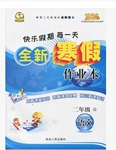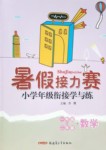题目内容
The Johnson family from England believe they are lucky to be alive after surviving an incredible incident off the coast of Australia. The Johnsons had been _______ that they might see some whales when they were_______ a yacht — a large expensive boat for a 10-day sailing _______ around the Whitsunday Islands. _______, they had no idea just how _______ their viewing would be. Two hours into their journey a nine-meter-long humpback whale_______ out of the ocean and crashed into their boat before returning to the water.
Mark Johnson, the eldest son, was sailing the yacht when he heard a loud noise. He_______ thought the yacht had hit a rock. However, when he looked up, he saw the whale _______ down the deck of the boat. He told the reporters, “ We were staring into its right eye. It was a very _______ moment. The eye was about the _______ of a dinner plate. It was huge.”
_______ for the Johnson family, no one was hurt, but the yacht suffered _____damage. The whale had ruined the pole and ropes which hold the _______and so the family was left _______ at sea, 10 miles from the shore. The_______ equipment was also damaged, but fortunately they had a cell phone and were able to call for help.
Why the whale jumped onto the yacht is a _______ ,but the family thinks that maybe the boat had not _______ sailed between the whale and its baby calf. Perhaps the whale was trying to_______ its calf when it jumped, hit the yacht by chance.
Whatever the reason, people are completely _______ that this incident happened. There is over 135 million square miles of ocean, so what are the _______ of a whale jumping onto a 30-foot-long yacht? The chance of something like this happening is small, but it just shows that life is full of surprises.
1.A. explained B. learned C. told D. taught
2.A. hiring B. running C. taking D. driving
3.A. competition B. game C. trail D. trip
4.A. Moreover B. Nevertheless C. Worthwhile D. However
5.A. wide B. close C. vivid D. tense
6.A. swam B. leapt C. slipped D. stretched
7.A. suddenly B. occasionally C. immediately D. accidentally
8.A. shooting B. jumping C. falling D. sliding
9.A. exciting B. surprising C. frightening D. astonishing
10.A. size B. sample C. range D. scale
11.A. Certainly B. Luckily C. Definitely D. Possibly
12.A. severe B. extreme C. actual D. special
13.A. boat B. beach C. sail D. journey
14.A. by all means B. in no time C. from then on D. with no way
15.A. radio B. craft C. edition D. compass
16.A. problem B. mystery C. suspect D. question
17.A. carefully B. surely C. deliberately D. simply
18.A. see B. touch C. tend D. reach
19.A. amazed B. worried C. interested D. touched
20.A. marvels B. chances C. predictions D. results
 优秀生快乐假期每一天全新寒假作业本系列答案
优秀生快乐假期每一天全新寒假作业本系列答案 暑假接力赛新疆青少年出版社系列答案
暑假接力赛新疆青少年出版社系列答案

 it was clear that there were any, he added.
it was clear that there were any, he added. out its use.
out its use.